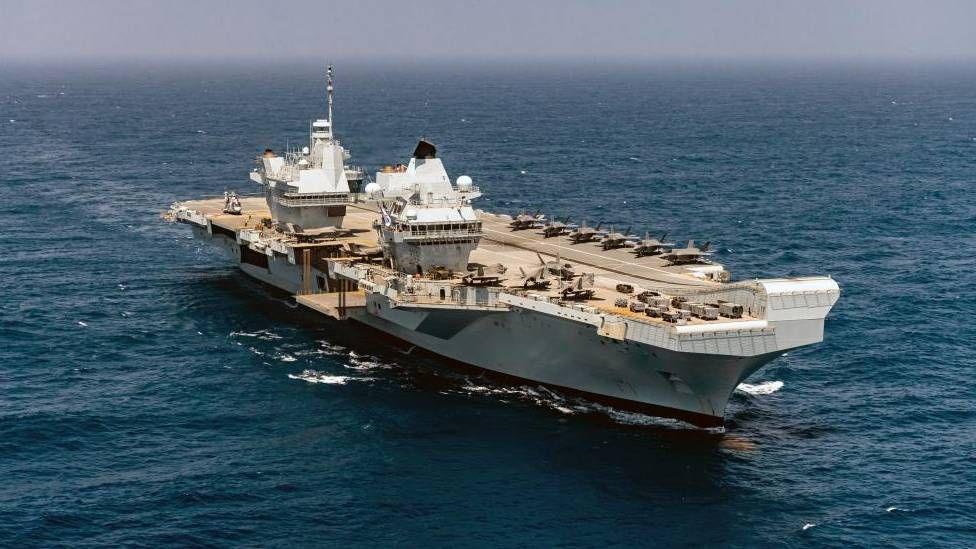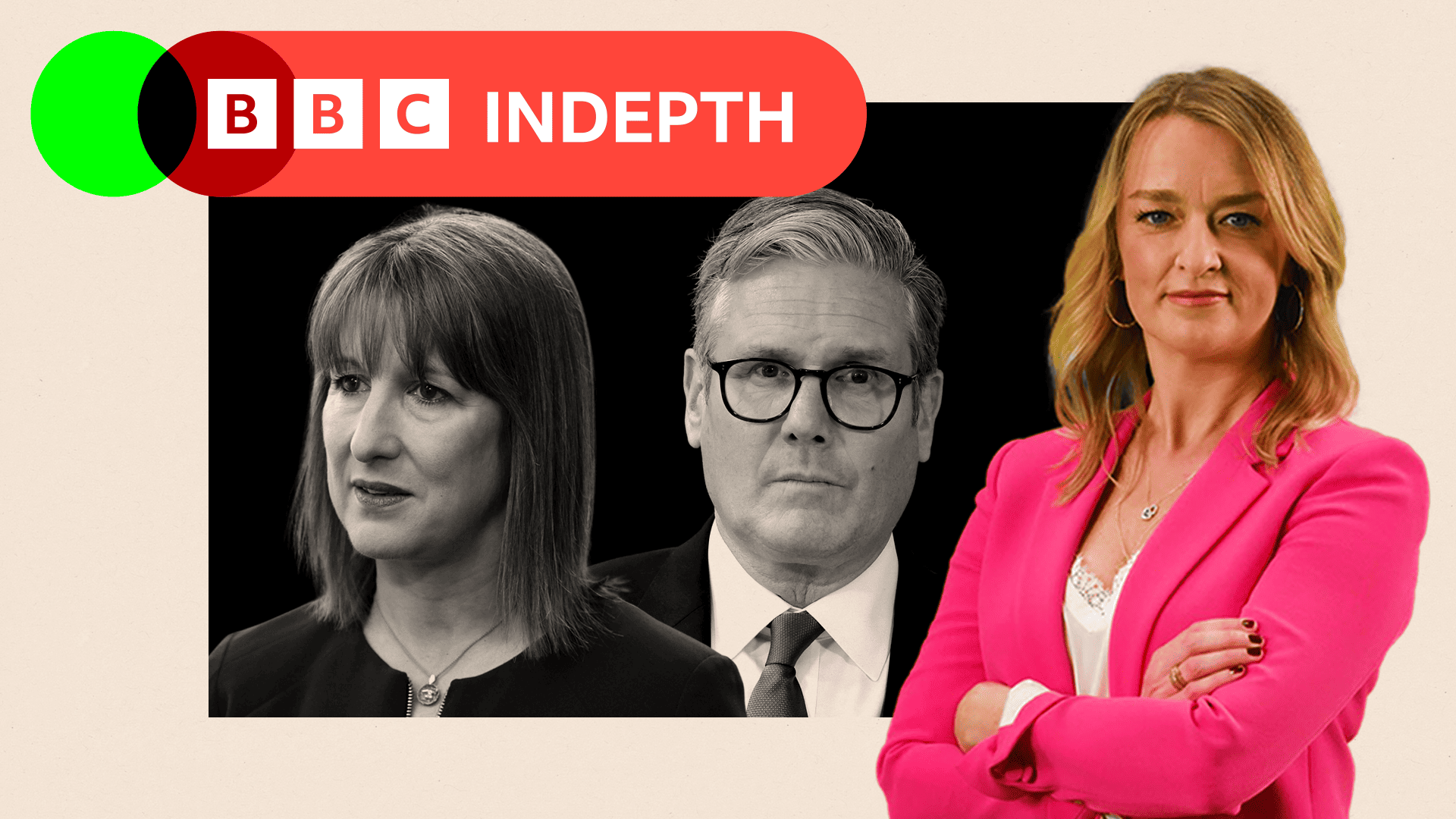Healey expects UK to spend 3% of GDP on defence by 2034

- Published
There is "no doubt" that UK defence spending will rise to 3% of GDP by 2034 at the latest, Defence Secretary John Healey has said.
In February, Prime Minister Sir Keir Starmer set out plans to increase defence spending to 2.5% by April 2027, with a "clear ambition" to reach 3% by 2034, economic conditions allowing.
A government source told BBC News the defence secretary had "full confidence" that ambition will be reached in the next parliament.
The government will unveil its major strategic defence review on Monday, which will outline its priorities for military and security spending in the coming years.
It is understood that the defence review is based on the assumption that the 3% target is the trajectory spending will follow.
It means some of the measures in the plan will be unaffordable if that level of spending is not reached.
The review will leave capacity for projects to be sped up and delivered faster if the 3% target is brought forward.
It is expected to warn of "a new era of threat" with drones and artificial intelligence changing the nature of the dangers Britain faces.
It will recommend the deployment of new "digital" experts alongside troops to protect them from enemy drones and to control the army's own, future, unmanned weapons.
The 130-page document, including about 45,000 words, will warn of the "immediate and pressing" danger posted by Russia and it will describe China as a "sophisticated and persistent challenge" but not as an enemy. It will also describe Iran and North Korea as "regional disruptors".
The government's independent budget watchdog, the OBR, said meeting the ambition to spend 3% of GDP on defence "would cost an additional £17.3 billion in 2029-30".
Speaking to the Times newspaper, external, Healey said there was "no doubt" the UK would meet its target.
"It allows us to plan for the long term. It allows us to deal with the pressures," he said.
The review comes as other government departments are still negotiating how much they will have to spend over the next three years.
The BBC understands the Deputy Prime Minister, Angela Rayner, has not yet reached an agreement with the Treasury over how much she will have allocated for areas such as building social and affordable homes, and for local councils.
The Home Office, which is responsible for areas including policing and border control, is still in the early stages of negotiations over how much money it will be allocated.
The defence ministry said on Saturday that more than £1.5bn in additional funding will spent on improving military homes as part of the government's review.
The extra funding will be used for urgent repairs, such as fixing faulty boilers and tackling mould, and for developing new housing.
It follows a report by Commons defence committee last year which found two-thirds of homes for service families needed "extensive refurbishment or rebuilding" to meet modern standards.
The Liberal Democrats said it was glad the government "has finally come to their senses and listened", but called for ministers to go further by bringing military accommodation to the decent homes' standard, which sets minimum standards for social home conditions.
